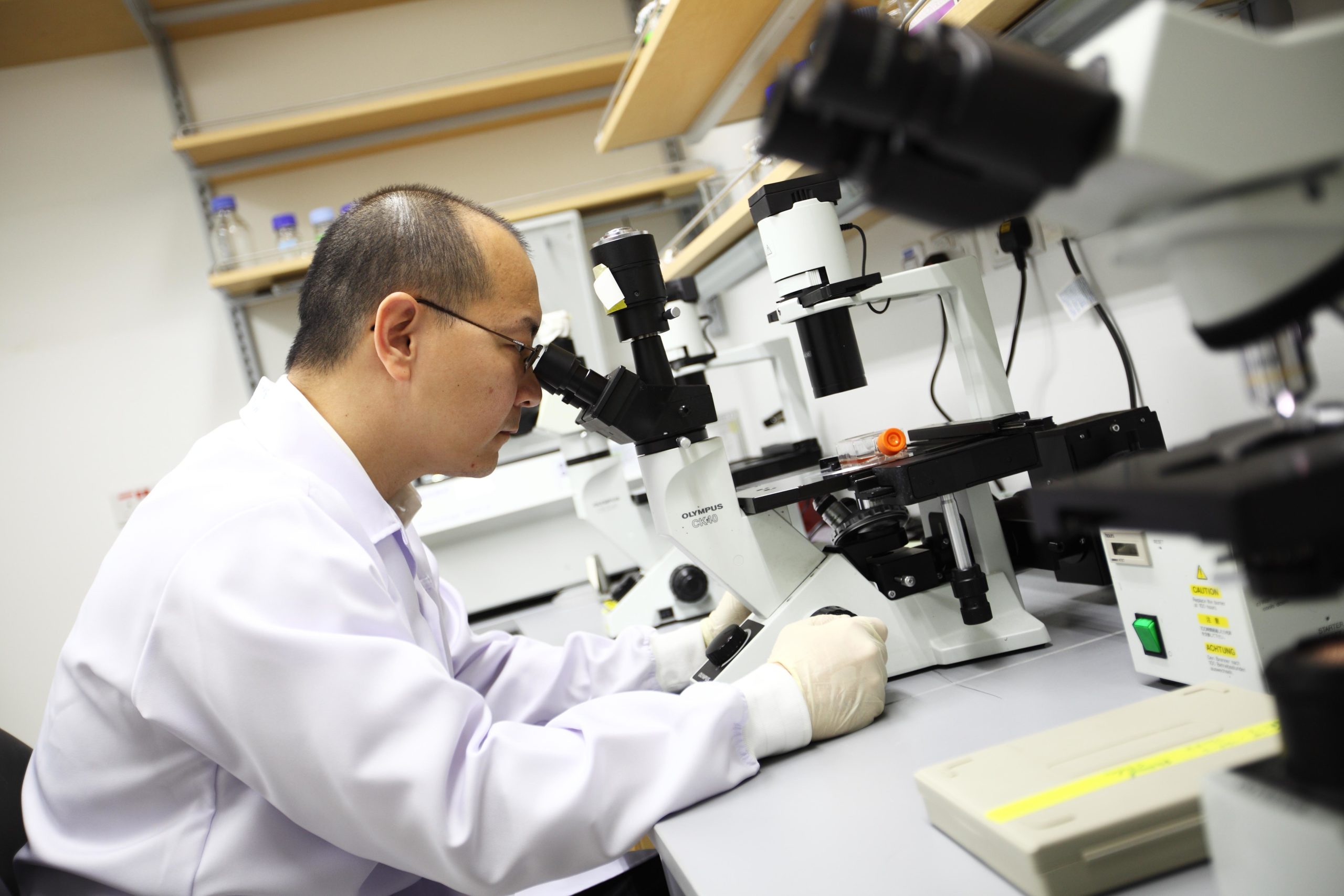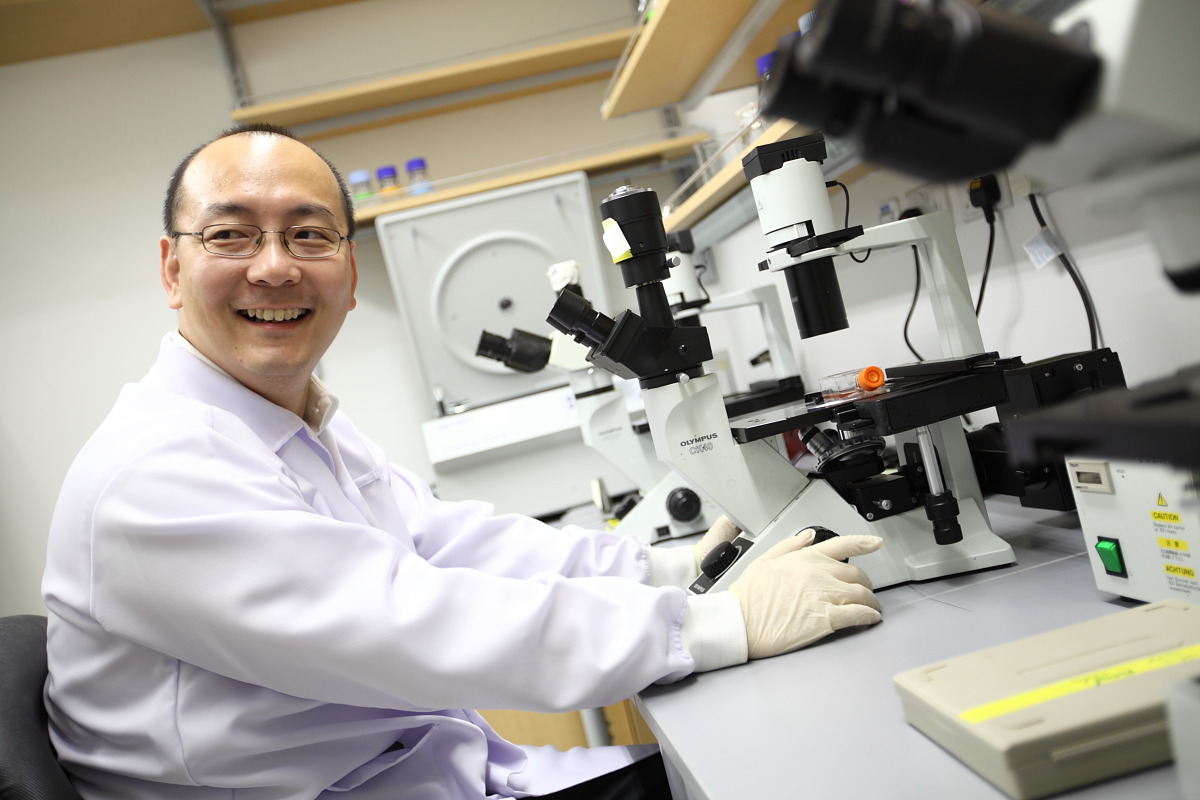Multiple Myeloma is a type of bone marrow cancer characterised by abnormal expansion of malignant plasma cells in the bone marrow. It is the second most common type of blood cancer and afflicts more than 100 patients in Singapore a year. It has a rising incidence in Asia, the reason for which is still elusive. These tumours may keep the bone marrow from making enough healthy blood cells. Normally, the bone marrow makes stem cells (immature cells) that become three types of mature blood cells:
- Red blood cells that carry oxygen and other substances to all tissues of the body
- White blood cells that fight infection and disease
- Platelets that form blood clots to help prevent bleeding
As the number of myeloma cells increases, fewer red blood cells, white blood cells, and platelets are made. The myeloma cells also damage and weaken the bone.
In time, myeloma cells collect in the bone marrow. They may damage the solid part of the bone. When myeloma cells collect in several of your bones, the disease is called “Multiple Myeloma”. This disease may also harm other tissues and organs, such as the kidneys.
Myeloma cells make antibodies called “M proteins”. These proteins can collect in the blood, urine and organs.
Eventually, myeloma causes anaemia, lytic bone lesions which may cause bone pain or fractures, renal impairment and hypercalcaemia.
Multiple Myeloma (MM) causes almost 2% of all new cancer cases and 2% of cancer deaths in the U.S. Here in Singapore, 100 new cases of this incurable cancer arise each year. Donations to this fund support research in MM, which includes ongoing work to reveal the processes by which this cancer develops and worsens. Researchers can then design new MM treatments that target these processes. Other work includes classifying MM cases based on the types of gene changes found in the cancer cells. This could lead to a more personalized, cost-effective approach whereby patients with higher-risk MM are selected for more aggressive treatment.
Reference for U.S. stats: National Cancer Institute. Surveillance, Epidemiology, and End Results (SEER) Program. Cancer Stat Facts: Myeloma. 2018.
All pictures courtesy of the National University Cancer Institute, Singapore (NCIS)








